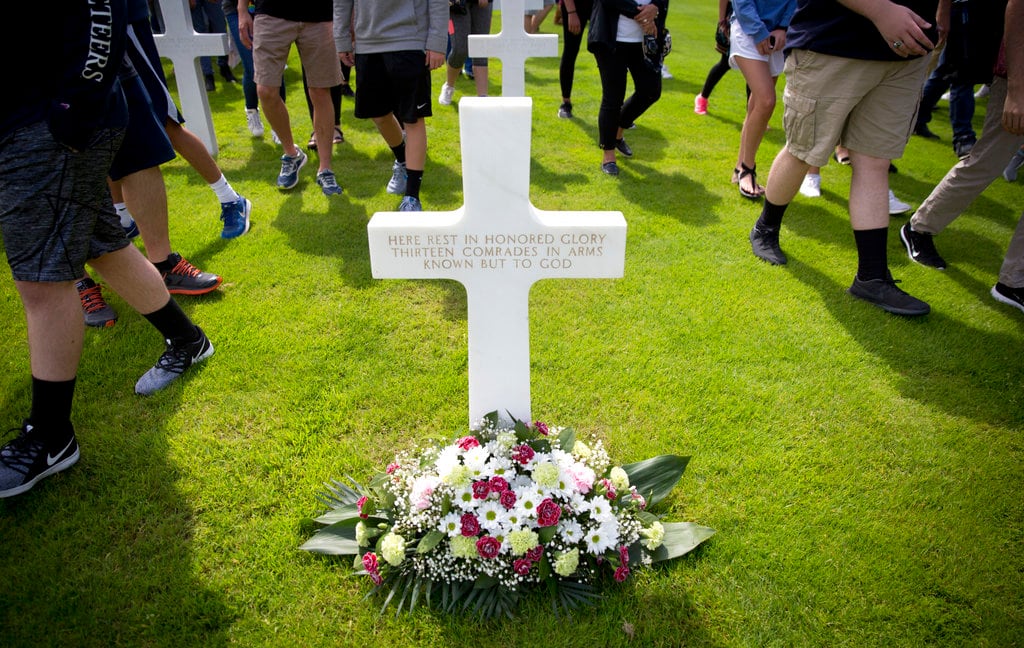After an extra month wait, the annual defense authorization bill is finally law.
President Obama signed the budget and policy bill on Wednesday, marking the 54th consecutive year the measure has survived Washington political fights to become law.
The most significant result for troops is the renewal of dozens of specialty pay and bonus authorities, and a massive overhaul of the military retirement system.
Starting in 2018, newly enlisted troops will not longer have the traditional 20-year, all-or-nothing retirement plan. Under the changes, it will be replaced with a blended pension and investment system, featuring automatic contributions to troops' Thrift Savings Plans and an opportunity for government matches to personal contributions.
The new system is expected to give roughly four in five service members some sort of retirement benefit when they leave the military, as opposed to the current system which benefits only one in five.
The $607 billion authorization bill also includes comprehensive defense acquisition reform and language designed to stop Obama from closing the detention facilities at Naval Station Guantanamo Bay, Cuba.
White House officials had objected to that language and hinted at a possible veto. But similar language in the measure each of the last six years didn't stop the president from signing past authorization measures into law.
Obama did veto an earlier draft of this fiscal 2016 authorization bill, but over broader fiscal fights that were resolved last month when lawmakers approved a new two-year spending plan that goes around mandatory budget caps for both defense and nondefense programs.
The legislation is only half the annual budget process for Congress. Lawmakers still need to pass a defense appropriations bill for fiscal 2016 to start new programs and acquisition plans. Congressional leaders are hopeful that can be done before Dec. 11, when a short-term budget extension expires.
But finalizing the annual defense authorization bill is a significant step forward in that larger process, and gives Pentagon planners a host of other policy updates as well:
- Allowing personal firearms on stateside bases — Lawmakers are requiring Defense Secretary Ash Carter to develop a plan by the end of this year that would allow stateside base commanders to decide whether to allow their service members to carry personal firearms on duty, or in areas where that is currently restricted by the military. Any such plan would not supercede local laws.
- A pay freeze for general and flag officers — Troops will see a 1.3 percent pay increase in January, lower than the rate of expected private-sector wage growth but more than their senior officers will get. General and flag officer pay will stay at fiscal 2015 levels.
- Another ban on a new BRAC round — Like in past years, the measure includes a prohibition on defense officials starting another base closing round. But lawmakers did include language allowing military officials to conduct studies on how much excess capacity exists in their stateside footprint, which could ease the path to such a move in the future.
- A ban on "paid patriotism" with sports leagues — The bill includes language that would prohibit the department from entering into contracts "making payments for honoring members of the Armed Forces at sporting events," in response to congressional reports that several professional sports teams were given tens of thousands of dollars to conduct on-field military appreciation events.
- Easier rules for military animal adoption — The measure changes the rules on adopting military dogs and other animals to make it easier for former handlers and families of injured handlers to adopt them following their military service.
- Developing "gender-neutral" standards for military jobs — In response to a push to open more military specialties to female troops, lawmakers want Pentagon leaders to craft "gender-neutral occupational standards" that would allow "decisions on assignments (to) be based on objective analysis."
Leo covers Congress, Veterans Affairs and the White House for Military Times. He has covered Washington, D.C. since 2004, focusing on military personnel and veterans policies. His work has earned numerous honors, including a 2009 Polk award, a 2010 National Headliner Award, the IAVA Leadership in Journalism award and the VFW News Media award.





